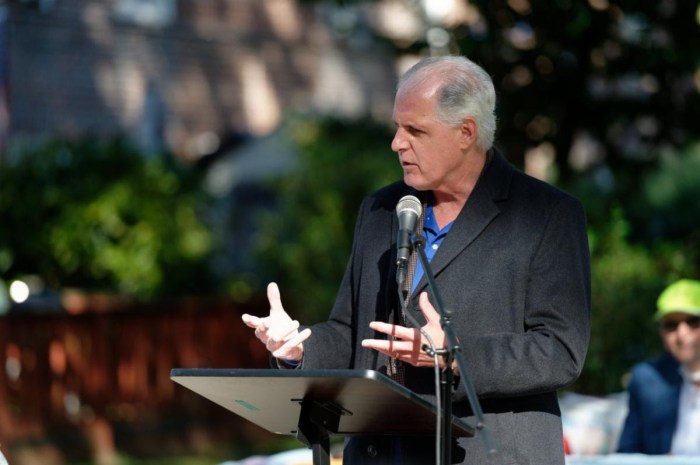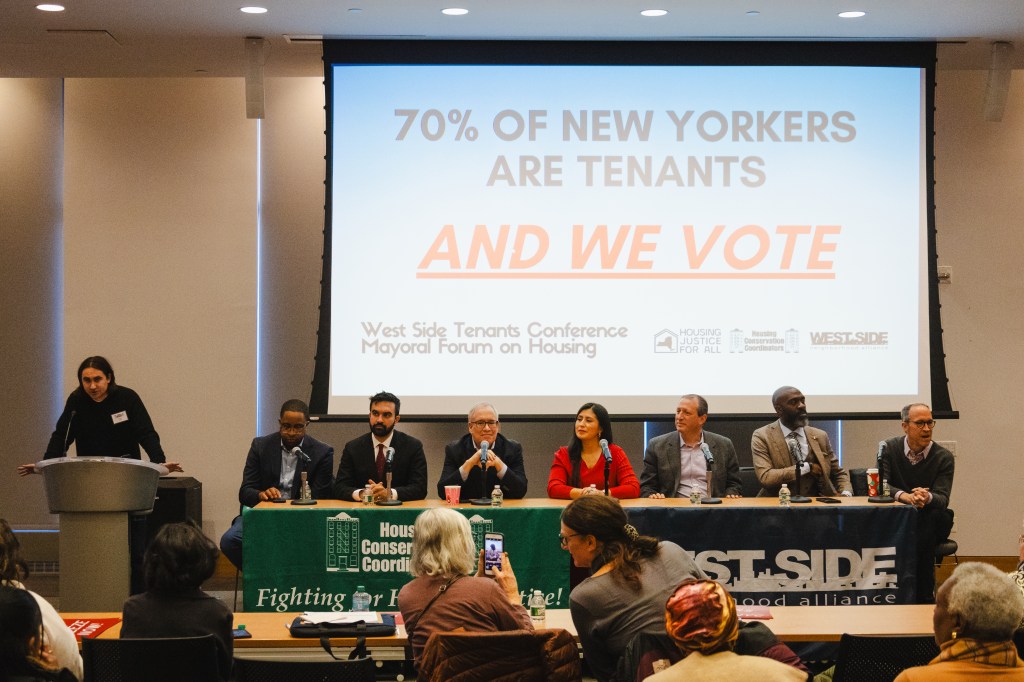The state energy agency already has…
By Dustin Brown
A coalition of community groups filed suit last week to prevent the New York Power Authority from placing two power plants in Long Island City as part of a plan to install 11 generators in the metropolitan area.
The state energy agency already has broken ground at 42-30 Vernon Blvd. in Long Island City for the power plants, which the NYPA says are designed to avert an energy crisis this summer when electrical demand peaks.
The suit was filed in State Supreme Court in Brooklyn by New York Lawyers for the Public Interest and the New York Public Interest Research Group on behalf of nine community groups that are all members of CURE, Communities United for Responsible Energy. The suit names the state Board on Electric Generation Siting and the Environment and the state Department of Environmental Conservation as well as the NYPA, saying that their actions were too closely linked to be considered separately.
The suit filed Feb. 7 targets 10 out of 11 gas turbine generators purchased in August 2000 by the NYPA, which plans to have them running by June 1. All parties in the case must file their papers in court by this Friday.
In addition to the two turbines intended for Long Island City, the Power Authority plans to equip one site in Brooklyn with two turbines and two sites in the Bronx with a total of four; additional sites in Brooklyn, Long Island, and Staten Island will each have one turbine. The Staten Island project is not targeted by the suit.
The petitioners accused the agencies of performing inadequate environmental reviews of the sites, issuing air permits illegally, violating zoning laws, and failing to adequately involve the community.
“The New York Power Authority is obviously disappointed by this irresponsible and misguided lawsuit,” the agency said in a statement. The NYPA contended the generators offer a short-term solution to the threat of power shortages until larger plants are completed within two or three years.
The energy agency called installing additional capacity a “prudent and highly desirable” step to ensure system reliability.
“We’re basing this on the opinion of the New York State Public Service Commission, which has stated the need for additional capacity in New York by the summer to essentially prevent California-style blackouts and brownouts,” said NYPA spokesman Joe Leary.
However, the petitioners claim that the fear of impending power failures is unfounded.
“We haven’t seen anything that says they need these plants for this summer,” said Gail Horwitz, a lawyer with New York Lawyers for the Public Interest. “If there is going to be a shortage of power in the next 10 years, they should think in terms of a long-term plan rather than frantically siting 10 generators this summer that we don’t need immediately.”
The suit demands that the city stop issuing construction permits for power plants until a long-term plan for power generation is developed.
“We don’t know what that plan is, we don’t know what that plan would be, but we do believe it is the responsibility of the state agencies to come up with a responsible long-term plan,” Horwitz said.
Dave Flanagan, a spokesman for the state Public Service Commission, said the emergency purchase of the generators was prompted by an energy shortfall in the city last summer.
“The way our system has always been designed for reliability purposes, you need enough generation in the city to meet 80 percent of the city’s projected peak load because there are transmission constraints in the city. Last summer we were 315 megawatts shy of meeting that,” he said.
The PSC has already begun to address this gap by upgrading certain plants and putting one generator back on line at Orion Power’s Astoria plant, Flanagan said. However, he said the 11 proposed generators are needed to meet anticipated usage for the approaching summer, projected to be 195 megawatts greater than last year.
Horwitz maintained the Power Authority is siting the plants in violation of zoning laws, which as a state agency is permitted to do. “If they’re not following New York City zoning laws, then they’re clearly not trying to be compatible with the neighborhoods in which they’re siting these plants,” Horwitz said.
Leary said the zoning violation is justified. “As a state agency obviously we need to have these plants put in place as soon as possible,” he said.
The lawsuit comes on the heels of another suit filed only days earlier by Silvercup Studios, the company that produces “The Sopranos” and “Sex and the City,” and other television and film projects, to prevent the two Long Island City generators from being installed next to its property.
Reach reporter Dustin Brown by e-mail at Timesledgr@aol.com or call 229-0300, Ext. 154.


































